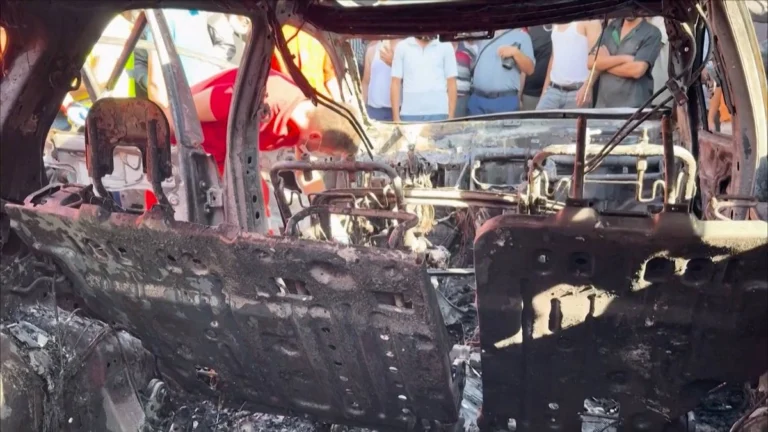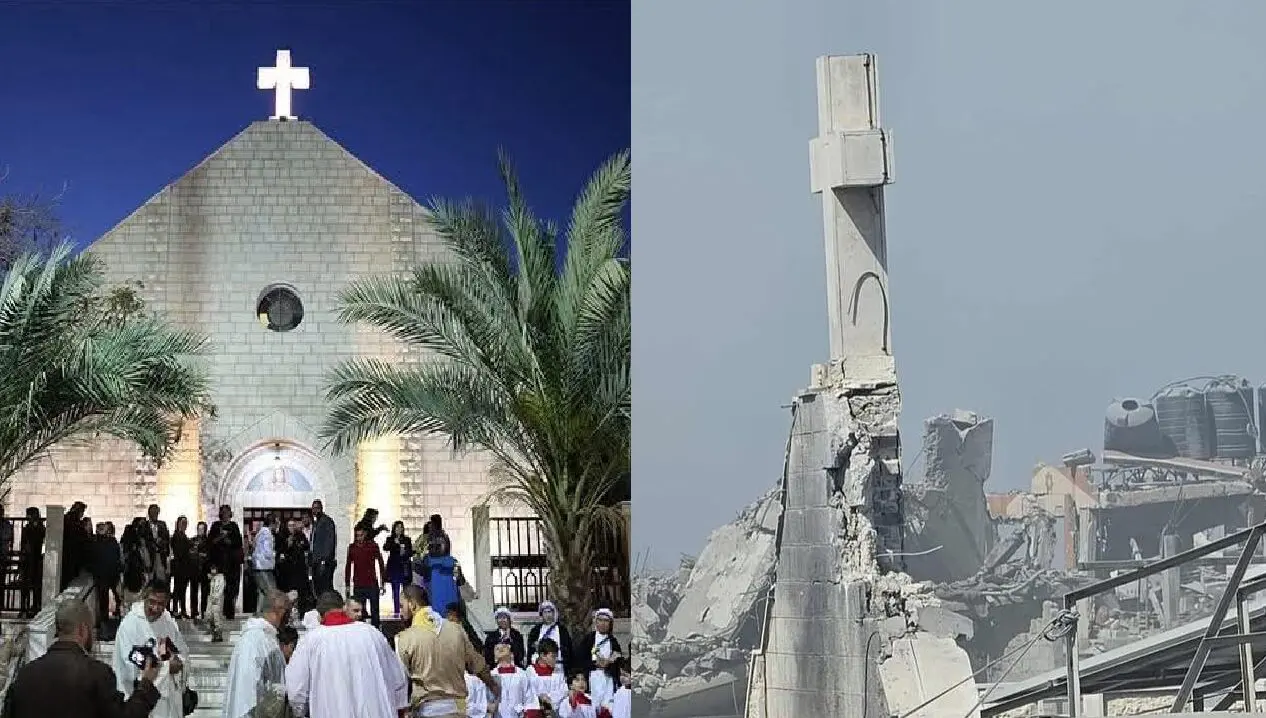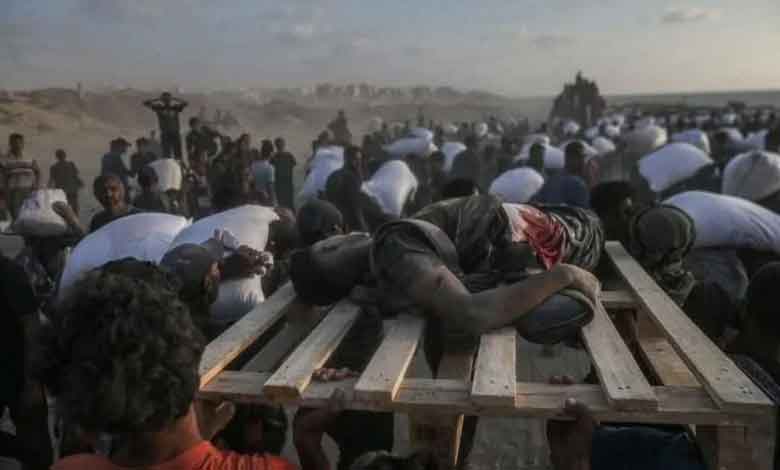Israel Expands Attacks Beyond Gaza: Ground Troops Enter Southern Lebanon Amid Ceasefire Breach

Photo: Democracy Now
July 9, 2025 Hour: 2:40 pm
In a dramatic escalation of the regional conflict, the Israeli military announced Wednesday the launch of “specific ground operations” inside southern Lebanon, targeting what it called Hezbollah’s military infrastructure.
The cross-border incursion marks a direct violation of the November 2024 ceasefire, raising fears of a broader warfront with the Lebanese resistance movement.
According to an official statement, Israeli troops from the 9th Brigade operated near Labbouneh, just across the border, while 300th Brigade forces entered the Jabal Blat area, carrying out tactical maneuvers and night raids. A video released by the Israel Defense Forces (IDF) shows infantry advancing through brush under cover of darkness.
“Based on intelligence identifying weapons caches and hostile infrastructure in multiple areas, our forces launched precision operations to prevent Hezbollah’s re-entrenchment,” the statement read. However, no mention was made of prior approval or coordination with the United Nations Interim Force in Lebanon (UNIFIL), which is mandated to monitor the border region.
The operation comes amid growing tension in the north, as daily Israeli airstrikes continue to hit southern Lebanon, ostensibly targeting Hezbollah and Palestinian resistance groups. Lebanese civilian infrastructure, including homes and public services, has also been damaged, prompting condemnation from Beirut and growing regional unease.
This latest operation violates the key terms of the November truce, which required both sides to withdraw their forces from the contested border region. Specifically, Hezbollah was to reposition north of the Litani River, while Israel was to fully evacuate from Lebanese territory—something it has failed to do, with its forces remaining in five “strategic” locations.
Lebanese President Joseph Aoun denounced the operation as a breach of Lebanese sovereignty and called on the United Nations and regional partners to hold Israel accountable. “The rules of engagement have been broken. This is no longer containment; this is provocation,” he said during a press conference in Beirut.
For its part, Hezbollah has not yet confirmed any engagement with Israeli forces on the ground but has repeatedly stated that it will respond to violations of the ceasefire with “measured but determined” action. Analysts suggest Hezbollah may be waiting to gauge public sentiment and regional support before escalating.
The Israeli government claims the operation is meant to “neutralize threats before they materialize,” yet critics argue the real objective is to expand the conflict and draw attention away from its mounting casualties and diplomatic isolation over the war in Gaza. Over 57,000 Palestinians have been killed in Gaza since October 2023, according to local health authorities.
International observers, including analysts from UNIFIL and Amnesty International, have expressed concern that the incursion may be a pretext for establishing a buffer zone inside Lebanon, effectively redrawing the border—a move that would violate international law and the 2006 UN Security Council Resolution 1701.
Meanwhile, the diplomatic track remains paralyzed, with Washington offering only lukewarm support for de-escalation. While Qatar and France have pushed for renewed negotiations, recent Israeli actions have undermined these efforts, forcing regional leaders to reassess their approach.
As the ground operation unfolds, the danger of a multi-front war looms ever larger, with Hezbollah, Palestinian factions, and Iranian allies watching closely. What began as a Gaza-based operation may now evolve into a far wider regional confrontation—one whose consequences could reach well beyond the Israel–Lebanon border.
Author: OSG
Source: Aljazeera-DW






